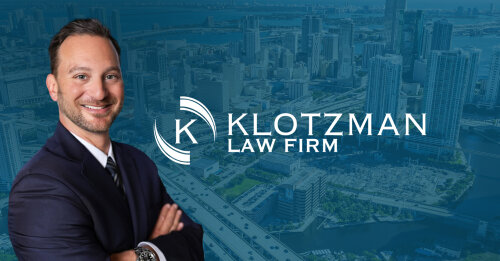Best Class Action Lawyers in New York
Share your needs with us, get contacted by law firms.
Free. Takes 2 min.
Or refine your search by selecting a city:
List of the best lawyers in New York, United States
About Class Action Law in New York, United States
Class action law in New York allows a group of individuals who have experienced similar harm from the same defendant to collectively bring a lawsuit. This legal process can involve issues such as consumer fraud, defective products, employment discrimination, securities fraud, and more. By uniting many similar claims, class actions can efficiently resolve widespread issues that may be uneconomical for individuals to pursue on their own. New York’s court system has specific rules and procedures for class actions, applying both to cases in state and federal courts.
Why You May Need a Lawyer
People may seek legal assistance with class action matters for several reasons. If you believe you have been harmed by a business’s actions or a defective product that affected many people, a lawyer can help determine if you have grounds for a class action. Class actions often involve complex legal and procedural steps, such as proving commonality among class members' claims, meeting filing requirements, and navigating negotiations or settlements. Attorneys also help ensure your rights are protected, inform you about potential compensation, and manage communications with other parties, the court, and fellow class members. Handling a class action without experienced legal counsel can limit your chances of success or result in lost compensation.
Local Laws Overview
New York class action procedures are primarily governed by Article 9 of the New York Civil Practice Law and Rules (CPLR). Key aspects of local class action law include:
- To proceed as a class, the case must satisfy criteria such as numerosity (enough people affected), commonality (similar legal or factual questions), typicality (representative’s claims are typical of the class), and adequacy (representative can fairly protect the interests of the class).
- Notice must be provided to potential class members if the class is certified by the court, providing them a chance to opt out if they choose.
- Settlements and awards must be reviewed and approved by the court to ensure fairness for all class members.
- New York allows class actions in state court, which is different from many other states that restrict class actions to federal court under some circumstances.
- Timelines and statutes of limitation apply, so it is important to act promptly if you think you may be part of a class action.
If the class action involves federal law or parties from different states, the case might proceed in federal court under rules established by the Federal Rules of Civil Procedure, especially Rule 23.
Frequently Asked Questions
What qualifies as a class action in New York?
A class action involves multiple people who have suffered similar harm from the same party. The court must approve the case as a class action by confirming the claims have enough in common, the group is large enough, and the lead plaintiff can adequately represent the class.
How do I know if I am part of a class action?
If you are potentially affected, you may receive a formal notice via mail, email, or public posting explaining your rights, the nature of the lawsuit, and how to participate or opt out.
What kinds of cases are commonly pursued as class actions?
Common class action subjects include fraudulent business practices, false advertising, defective products, unfair employment practices, securities fraud, and data breaches.
Does it cost money to join a class action?
In most cases, class action law firms work on a contingency basis, meaning there are no upfront fees. They collect their fees as a percentage of any settlement or award.
What if I do not want to be part of a class action?
You generally have the right to opt out, which preserves your ability to sue the defendant individually. Instructions on how to opt out are detailed in the formal class notice.
How long does it take to resolve a class action in New York?
Class actions may take months or years to resolve, depending on the complexity of the case, number of people involved, and whether the case settles or goes to trial.
How do I find out if a class action has been filed that affects me?
Public notices are often posted online, in newspapers, or mailed directly to affected individuals. You can also check court websites or consult a class action attorney.
What compensation can I receive from a class action?
Compensation varies depending on the case and may include reimbursement for financial losses, statutory damages, or other relief such as replacement products or services.
Can I start my own class action?
Yes, with the help of a lawyer. You must meet certain legal standards and file a complaint explaining why a class action is appropriate. A court will decide if your case can proceed as a class action.
Do class actions affect my ability to sue individually later?
If you stay in the class and do not opt out, you usually cannot bring your own lawsuit over the same issue later. If you opt out, you retain the right to file your own case.
Additional Resources
The following organizations and government agencies can help you find information or support regarding class actions in New York:
- New York State Unified Court System - Provides public access to court records and information about class action rules.
- Office of the New York Attorney General - Handles consumer protection matters and frequently posts about related class actions.
- Legal Aid Society and other local nonprofit organizations - Can provide legal help or referrals to appropriate attorneys in class action matters.
- New York State Bar Association - Offers lawyer referral services for consumers involved in or seeking information about class actions.
- Federal courts in New York - For class actions under federal law or involving multi-state parties.
Next Steps
If you believe you may have grounds for a class action or have received notice that you are a potential class member, consider taking the following steps:
- Gather any relevant documents, such as receipts, contracts, or communications related to your claim.
- Consult with a qualified class action attorney experienced in New York law, who can assess your situation and advise you on your rights and options.
- Review all notices and legal documents carefully before deciding whether to participate in or opt out of a class action.
- Pay attention to deadlines for participation or exclusion, as your rights may be affected by waiting too long.
- Stay informed by checking court websites or contacting your attorney for updates about ongoing or potential class actions relevant to your situation.
Taking prompt action and seeking legal advice ensures your interests are represented and you do not miss important opportunities for compensation or justice in a class action lawsuit.
Lawzana helps you find the best lawyers and law firms in New York through a curated and pre-screened list of qualified legal professionals. Our platform offers rankings and detailed profiles of attorneys and law firms, allowing you to compare based on practice areas, including Class Action, experience, and client feedback.
Each profile includes a description of the firm's areas of practice, client reviews, team members and partners, year of establishment, spoken languages, office locations, contact information, social media presence, and any published articles or resources. Most firms on our platform speak English and are experienced in both local and international legal matters.
Get a quote from top-rated law firms in New York, United States — quickly, securely, and without unnecessary hassle.
Disclaimer:
The information provided on this page is for general informational purposes only and does not constitute legal advice. While we strive to ensure the accuracy and relevance of the content, legal information may change over time, and interpretations of the law can vary. You should always consult with a qualified legal professional for advice specific to your situation.
We disclaim all liability for actions taken or not taken based on the content of this page. If you believe any information is incorrect or outdated, please contact us, and we will review and update it where appropriate.
Browse class action law firms by city in New York
Refine your search by selecting a city.
















